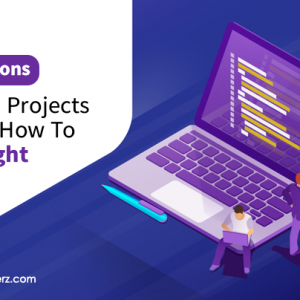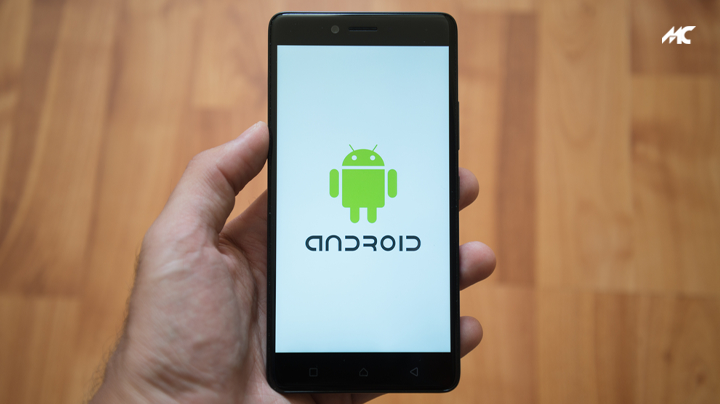The Journey of Android, Evolution Continues…
Since the inaugural of Android Evolution on September 23rd, 2008, we’ve been witnessing the official release of some significant OS versions till the date. From being launched on an HTC-made T-mobile device to being made compatible with foldable phone, Android OS has evolved with a long list of version updates.
In October 2003, Android OS came into existence with combined efforts of Andy Rubin, Nick Sears, Rich Miner, & Chris White who later collaborated with Google to unveil Android 1.0 in September 2008, the very first commercial version of the popular OS.
Speed Read the Android Evolution/History of Android OS (2008- Present)
Android 1.0
The first-ever update of Android commercial version was meant for HTC dream device. It was released with features like Gmail synchronization, Google contacts, camera support, media player, Google calendar, WiFi & Bluetooth support, and more.
Android 1.1 Cupcake
Based on Linux Kernel, the codename of Android 1.5 update is inspired from dessert item “Cupcake”. With new features & UI amendments, Android cupcake came with support for third-party virtual keyboards, copy-paste features, animated screen transitions, auto-rotation, & more.
Android 1.6 Donut
Launched in Sep 2009, Android Donut came with some interesting add-ons with multi-lingual speech synthesis engine, WVGA screen resolution support, access to the camera, gallery, & camcorder, gesture framework, voice & text entry search, etc.
See Also : Android App Development Benefits, Process, & Technologies Involved Via Infographics
Android 2.0 Éclair
Another major release in October 2009 was Android Éclair that was based on Linux Kernel 2.6.29 and featured support for Microsoft exchange, Bluetooth 2.1, multiple accounts for email, new calendar, and new browser user interface.
Android 2.2 Froyo
Officially rolled out in 2010, Android Froyo was known for optimized speed, memory, & performance. Some of its key features were integrated Chrome’s V8 JavaScript engine, support for Android Cloud to device messaging, USB tethering, Wi-Fi hotspot support, Adobe flash support, etc.
Android 2.3 Gingerbread
Integrated with a brand new UI & upgraded onscreen console with improved accuracy & instinctive content. Android Gingerbread version was filled with UI refinements, one-touch word selection, Near field communication, internet calling, & more.
Android 3.0 Honeycomb
Google unveiled this Android version for tablets. Apart from being an entirely tablet-centred rendition, it came with “holographic” UI, system bar feature for notification and buttons & functions for Bluetooth tethering, built-in support for transfer protocol, multitasking, etc.
Android 4.0 Ice Cream Sandwich
This Android OS version was released in October 2011 and was meant to support all devices powered by Android 2.3. It came with features like face unlocking, Roboto, HDP support, Android Beam, Wi-Fi direct, Bluetooth HDP support, & Android Beam.
Android 4.1 Jellybean
Jellybean was released on 9th July 2012. This version update revealed enhanced UI in terms of features & performance. Android Jellybean was much more responsive & faster than previous versions and it introduced Resizable app widgets, Google Now, offline voice dictation, & more.
Android 4.4 KitKat
On October 31, 2013, the sensational launch of KitKat OS for Android became the most discussed event when it was first tested on Nexus 5 device. With immersive mode and customized user interface, this Android OS allowed apps to hide the unnecessary buttons on-screen & status bar.
Android 5.0 Lollipop
The arrival of Android Lollipop was officially announced on November 12, 2014. Some notable updates of this version include a material design with a minimalistic theme. Android Lollipop enables users to store third-party apps in external memory and effectively lock & unlock their devices.
Android 6 Marshmallow
Android Marshmallow was released on May 2015 but made available for devices in October 2015. Its major updates were “Now on Tap” feature, battery management update, adoptable storage functionality, & improved fingerprint unlocking.
Android 7 Nougat
Initially, Android Nougat was launched as a beta version in March 2016. Although there are minimal differences between Nougat and Marshmallow, Nougat’s update for split-screen mode on Android devices for the first time.
Android 8 Oreo
One more Android OS on the name of a sweet dish, Oreo was launched in March 2017. It is 8th major release in a row with factory images for Nexus & Pixel devices. Android Oreo came with picture-in-picture support, adaptive icons, multi-display support, restructured setting, etc.
Android 9 Pie
Google declared the release of Android Pie on March 7, 2018. However, the final official release was made Aug 6, 2018. One of the latest updates of this OS feature new UI, dock with semi-transparent background, screenshot button at power, rounded corner around UI, & much more.
Android 10
Android 10 was launched recently on September 3, 2019, and currently, it is available on the first-generation Pixel and Pixel XL devices. It features a fully-revamped gesture system, screen swiping for Google Assistant activation, bubble feature for UI, system-wide dark mode, support for biometric authentication, shortcut sharing, & etc.
Top 5 Best Android Apps of 2019 (Revenue)
- CANDY CRUSH Saga 41.16 million USD
- Clash of clans 37.83 million USD
- Coin Master 32.8 million USD
- PUBG Mobile 31.37 million USD
- Pokemon GO 28.93 million USD
Let us experience the Android Evolution with the Infographics


Conclusion
What’s the future of Android?
Since the onset of Android evolution, Google introduced more powerful & secure versions of the OS with advanced features. The latest prediction reveals that the tech giant is planning to bring an all-new OS i.e Fuchsia that may run on smartphones to tablets, notebook, desktops, & other devices. For now, nothing can be said about the launch of Fuchsia as no official statement has been made on its launch from the company’s spokesperson. However, the world is excited to witness the launch of future versions of Android
-

 Node.js vs React.js: Choosing the Best Framework for 2022
Node.js vs React.js: Choosing the Best Framework for 2022 -

 MobileCoderz Awarded With The Top Mobile App Development Company In India By Good Firms
MobileCoderz Awarded With The Top Mobile App Development Company In India By Good Firms -

 Top Reasons Software Projects Fail and How To Get It Right
Top Reasons Software Projects Fail and How To Get It Right




